 The Mirror of the Medieval
The Mirror of the Medieval 
MAKING SENSE OF HISTORY
Studies in Historical Cultures
General Editor: Stefan Berger
Founding Editor: Jrn Rsen
Bridging the gap between historical theory and the study of historical memory, this series crosses the boundaries between both academic disciplines and cultural, social, political and historical contexts. In an age of rapid globalization, which tends to manifest itself on an economic and political level, locating the cultural practices involved in generating its underlying historical sense is an increasingly urgent task.
For a full volume listing please see back matter.
T HE M IRROR OF THE M EDIEVAL
An Anthropology of the Western Historical Imagination
K. Patrick Fazioli

Published in 2017 by
Berghahn Books
www.berghahnbooks.com
2017 K. Patrick Fazioli
All rights reserved. Except for the quotation of short passages for the purposes of criticism and review, no part of this book may be reproduced in any form or by any means, electronic or mechanical, including photocopying, recording, or any information storage and retrieval system now known or to be invented, without written permission of the publisher.
Library of Congress Cataloging-in-Publication Data
A C.I.P. cataloging record is available from the Library of Congress
British Library Cataloguing in Publication Data
A catalogue record for this book is available from the British Library
ISBN 978-1-78533-544-0 hardback
ISBN 978-1-78533-545-7 ebook
To my mom
Contents

Tables, Figures, and Maps

Tables
Figures
Maps
Acknowledgments

This book would not have been possible without the assistance, support, and encouragement of colleagues, family, and friends. As many of the ideas contained herein had their genesis in the formative years of graduate school, I will always be indebted to my doctoral adviser, T.J. Chevral, and the rest of the faculty members at UB Anthropology from whom I learned so much, especially Sherm Milisauskas, Ezra Zubrow, and Peter Biehl. The chapters in this book also greatly benefitted from conversations with Matthew Bowker, Tim McCorry, Jerry Erion, Ray Whitlow, Josh Kwoka, as well as the comments of four anonymous reviewers. I also greatly appreciate the hard work and patience of my editor at Berghahn, Chris Chappell.
My sincere thanks are also extended to colleagues in Central Europe, who were so generous in sharing not only their data, but also their perspectives on the past. The field and laboratory work that informed the arguments in this book would not have been possible without the help of Christoph Gutjahr, Manfred Lehner, Bernhard Hebert, Stephan Karl, Zvezdana Modrijan, Tina Milavec, Benjamin tular, Andrej Pleterski, Ivan M. Hrovatin, Hajnalka Herold, the entire Leitinger family, and the numerous American and Austrian students who aided in my fieldwork. Financial support for my research was provided by a National Science Foundation Dissertation Improvement Grant and a Mark Diamond Research Grant from the Graduate Student Association at the University at Buffalo.
Finally, none of this would have been possible without the support, sacrifices, and love of my entire extended family, but particularly my wife Rachel and our three amazing children.
Introduction

Interdisciplinary projects are perilous endeavors. Despite all the lip service paid to inter- and trans-disciplinarity as the future of academic research, the traditional nineteenth-century intellectual division of labor in the human sciences remains largely intact today, and continues to be reinforced by archaic institutional barriers, the hyper-specialized nature of postgraduate training, discipline-specific jargon, and, perhaps above all, the incentive structure of the academic job market. Furthermore, since research questions and lines of inquiry deemed interesting by one disciplinary community often fail to translate to even closely related fields, such projects run a perpetual risk of falling between the cracks, condemning them to a fate far worse than skepticism or criticism: deafening silence.
Consider the relationship between cultural anthropology and medieval history, two fields with broadly convergent agendas that remain institutionally and intellectually isolated from one another.
While keeping the aforementioned pitfalls of interdisciplinarity in mind, there is great promise in creating a new framework for the study of Europes Middle Ages that builds upon and integrates current trends in anthropological, historical, and archaeological approaches to the past. Even if this book fails to fully deliver on such an ambitious goal, at the very least it should demonstrate why investigating the complex relationship between the (medieval) past and present necessitates such a relentlessly transdisciplinary perspective.
The following investigation will unfold in a decidedly nonlinear fashion, as navigating tricky terrain across multiple disciplines, places, and times requires frequent shifts between the medieval, early modern, and contemporary worlds, as well as trekking from the heart of Europe to distant lands in colonial Africa, Asia, and the Americas. Folding space-time in this unorthodox manner not only allows us to tackle an eclectic array of problems and themes, butmore importantlyreveals the subtle and profound connections among them. The seven chapters of this book take us on a whirlwind tour from daily life on fortified settlements in the post-Roman world to the Nazi occupation of East-Central Europe, from the late medieval travels of William of Rubruck to the writings of nineteenth-century colonial administrators in Africa and Asia, and from the Christianization of the early medieval Eastern Alps to recent debates over what it means to be authentically Slovenian. All the while we will consider the broader theoretical implications for sociocultural constructions of history, temporality, and technology.
This topical diversity requires from the outset a clear articulation of the underlying thematic unity. First and foremost, this is a book about the power of the past; specifically, how historical and archaeological narratives shape, and are shaped by, present-day political, cultural, intellectual, and economic agendas. Moreover, since processes of identity formation furnish the past with its ideological potency, we will also trace the sociopolitical dynamics of inclusion and exclusion in both the medieval and modern eras. Therefore, a second overarching theme is the intrinsic human desire to belong to community (real or imagined), as well as the resultant urges to exoticize and primitivize the other. Such psychosocial drives are at the heart of the colonialist, imperialist, and nationalist ideologies traced throughout these chapters. Finally, since all investigations of the relationship between past and present are premised upon certain assumptions about temporality and technology, interrogating these two concepts will allow us to better appreciate how group identities are reinforced through historical narrative, as well as how material objects allow the past to persist into the present.
Next page

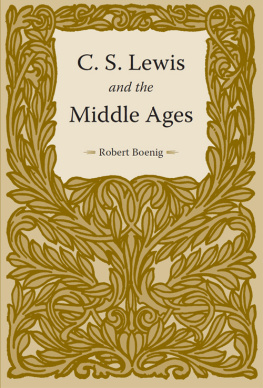
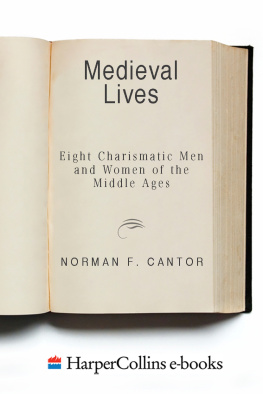
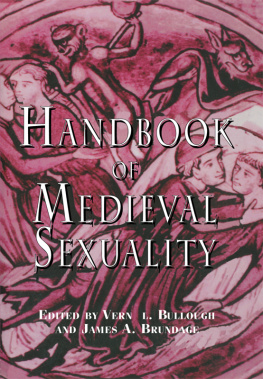
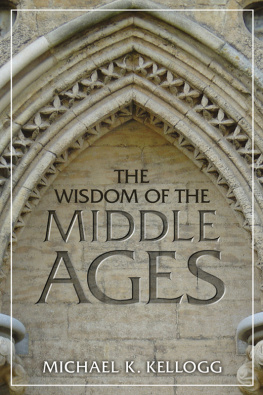
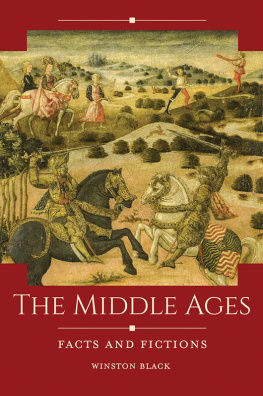
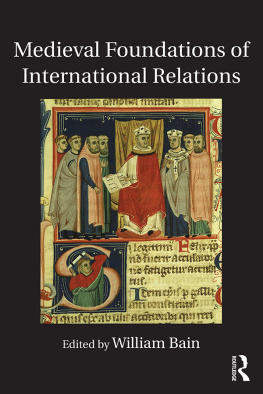

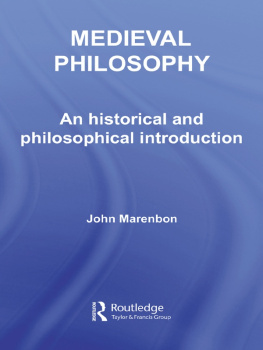
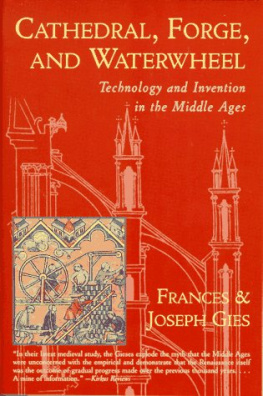
 The Mirror of the Medieval
The Mirror of the Medieval 

